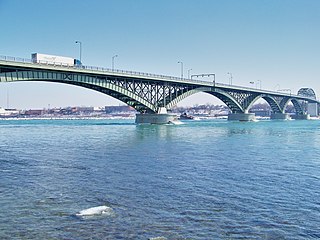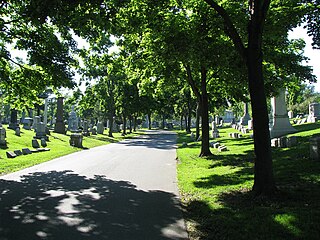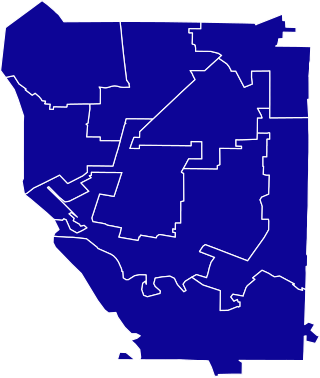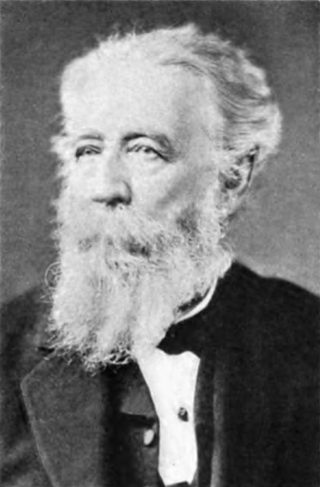| | |||||||||||||||||||||
| |||||||||||||||||||||
| |||||||||||||||||||||
| |||||||||||||||||||||
The Buffalo mayoral election of 1989 took place on November 4, 1989 and resulted in incumbent mayor Jimmy Griffin winning his last term as mayor against two other opponents. [1]
| | |||||||||||||||||||||
| |||||||||||||||||||||
| |||||||||||||||||||||
| |||||||||||||||||||||
| Elections in New York State |
|---|
 |
The Buffalo mayoral election of 1989 took place on November 4, 1989 and resulted in incumbent mayor Jimmy Griffin winning his last term as mayor against two other opponents. [1]

Buffalo is the second-most populated city and sixth-most populated municipality in the U.S. state of New York and the seat of Erie County. It lies in Western New York, at the eastern end of Lake Erie, at the head of the Niagara River, on the United States border with Canada. With a population of 278,349 according to the 2020 census, Buffalo is the 78th-largest city in the United States. Buffalo and the city of Niagara Falls together make up the two-county Buffalo–Niagara Falls Metropolitan Statistical Area (MSA), which had an estimated population of 1.1 million in 2020, making it the 49th largest MSA in the United States.

The Buffalo Bisons are a Minor League Baseball team of the International League and the Triple-A affiliate of the Toronto Blue Jays. Located in Buffalo, New York, the team plays their home games at Sahlen Field, the highest-capacity Triple-A ballpark in the United States.

James Donald "Jimmy" Griffin was an American politician who served in the New York State Senate and then for 16 years as the Mayor of Buffalo, New York (1978–93). He later returned to public life serving as a member of the Buffalo Common Council.

Byron William Brown II is an American politician who is the current mayor of Buffalo, New York. He has served as Buffalo's 62nd mayor since January 2006, the City's first African-American mayor and longest serving mayor. He previously served Western New York as a member of the New York State Senate and Buffalo Common Council. He is the first African-American politician elected to the New York State Senate to represent a district outside New York City and the first member of any minority race to represent a majority-white New York State Senate district.

Forest Lawn Cemetery is a historic rural cemetery in Buffalo, New York, founded in 1849 by Charles E. Clarke. It covers over 269 acres (1.1 km2) and over 152,000 are buried there, including U.S. President Millard Fillmore, First Lady Abigail Fillmore, singer Rick James, Congresswoman Shirley Chisholm, and inventors Lawrence Dale Bell and Willis Carrier. Forest Lawn is on the National Register of Historic Places.

The Buffalo Common Council is the legislative branch of the city of Buffalo, New York government. It is a representative assembly, with one elected member from each of nine districts: Niagara, Delaware, Masten, Ellicott, Lovejoy, Fillmore, North, University, and South. In the past, the Common Council also had as many as five at-large members and a Council President who were elected citywide. Each council seat is elected for a four-year term, with elections occurring during off-years, between mid-term elections and presidential elections.

Buffalo, New York's government is run by a democratically elected mayor and council of nine members.

A mayoral election took place in Buffalo, New York on November 3, 2009. Incumbent Democratic mayor Byron Brown won re-election to a second term.

Henry Howard was a banker and businessman, and served as mayor of Detroit in 1837, and as the first treasurer of the state of Michigan.

The 2013 election for Mayor of Buffalo, New York took place on November 5, 2013. Two-term incumbent Democrat Byron Brown won reelection, defeating Republican Sergio Rodriguez.

The 2005 Buffalo Mayoral Election took place on November 8, 2005. After incumbent Anthony M. Masiello, a Democrat, announced on April 29, 2005, that he would not seek a fourth term as mayor, a field of several Democratic candidates emerged, from which New York State Senator Byron Brown emerged victorious in the primary election. In the general election, Brown went on to defeat Republican challenger Kevin Helfer, former member of the Buffalo Common Council for the University District, as well as two minor-party candidates. Buffalo's 2005 mayoral election is notable as the first in the city to be won by an African-American candidate.

The 2001 Buffalo Mayoral election took place on November 6, 2001. Incumbent Anthony M. Masiello, a Democrat, easily trounced his sole opponent in the primary, going on to win a third term with no serious opposition in the general election. Buffalo's 2001 mayoral election was notable for its uncharacteristic quietness, despite pressing issues such as allegations of environmental contamination in the Hickory Woods neighborhood of South Buffalo and chronic poverty and urban blight. This was speculated as being due to reticence on the part of would-be candidates to "challenge a powerful and well-liked mayor like Masiello", especially one with a campaign fund in excess of $1 million. It was also only the second time in history when the Democrats and Republicans endorsed the same candidate for mayor of Buffalo, a phenomenon made possible by New York State's electoral fusion law.

The Buffalo mayoral election of 1997 took place on November 4, 1997 and resulted in incumbent mayor Anthony Masiello winning a second term over former mayor Jimmy Griffin and two other opponents.

The Buffalo mayoral election of 1993 took place on November 4, 1993 and resulted in local politician Anthony Masiello winning a first term as mayor after Jimmy Griffin had resigned against two other opponents.

The Buffalo mayoral election of 1981 took place in Buffalo, New York, USA, on November 4, 1981, and resulted in the incumbent mayor Jimmy Griffin winning a second term over his opponent, the local politician Alfred Coppola, who ran on a minor party line.

The 2017 Buffalo mayoral election was held on November 7, 2017. Incumbent three-term Democratic mayor Byron Brown won re-election to a fourth term.

The Buffalo mayoral election of 1881 saw the election of former Erie County Sheriff Grover Cleveland, who defeated architect and alderman Milton Beebe by what was considered a broad margin.

The 2021 Buffalo mayoral election was held on November 2, 2021. Democratic Mayor Byron Brown won his fifth-term in office as a write-in candidate. Brown's victory marked the first time since 1985 that Buffalo did not elect the Democratic nominee for mayor.

The Buffalo mayoral election of 1977 took place in Buffalo, New York, USA, on November 8, 1977, and resulted in the election of Jimmy Griffin to his first term as mayor.